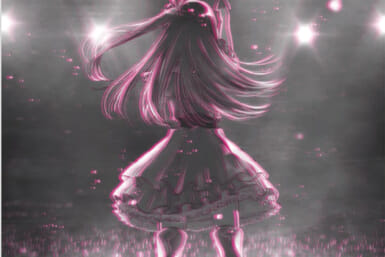Writing about popular entertainment is not rocketry science, which is the main reason why Corky and I like writing about entertainment.
Being simple, straightforward guys, we naturally appreciate the simple, straightforward nature of the world of entertainment: actors are either good or they suck; movies are either hits or they suck; television programs either have huge ratings or they suck; pop songs have good beats you can dance to or they suck.
Given simple, straightforward choices like that, it’s no wonder the two of us have been reviewing films and music for ever so many years.
Thus, it comes as a surprise—more to me than to Corky, who’s been around a lot longer and surprises much less easily—it comes as a surprise when reports about entertainment, shall we say, overlook the obvious. Last month, you may recall, a contestant on “Who Wants to Be a Millionaire?”— the closely watched U.S. TV program—won $2.18 million, which ABC claims was “the biggest quiz show prize in network television history,” according to an AP report. And about eight months before this milestone, a Japanese version of ABC’s ratings smash crashed and burned.
Reviewing the demise of “Quiz $ Millionaire,” an AP reporter wrote: “Japanese TV producers have long had a simple rule of thumb regarding programming: If something’s big in the United States, it will probably work here as well… (T)he Japanese have long had an insatiable appetite for U.S. pop culture…(J)ust about anything that’s a hit in America is a hit here.”
Far be it for us to take to task a reporter for repeating what everyone knows is true. Trouble is, it isn’t.
“If something’s big in the United States, it will probably work here as well”? Like “Dallas,” the phenomenally popular drama that went sliding down the oil-slickened local crapper? Like “Baywatch,” the worldwide phenomenon that caused barely a ripple in the local surf? Like “The Cosby Show,” the top-rated program in the U.S. for five seasons in a row that local families disowned? Like “The Muppet Show,” the variety half-hour seen in more than 100 countries that…but I think you get the idea.
Fact is, big Stateside TV successes are just as likely— maybe even likelier—to go down in flames as to light up the sky. So why has it become received wisdom that the Japanese can’t resist noshing at the U.S. pop cultural smorgasbord?
Well, the simple explanation is that this stereotype— and that’s what it is—sounds so damn plausible. Japanese, we all know, are big copycats, taking their cues about what’s cool from their peers overseas. And U.S. pop culture, we all know, is a monolithic entity that people round the world welcome with open arms.
My many years of observing Our Hosts has taught me that their embrace of U.S. pop culture may be passionate, but it’s also selective, at times even contrary. Movies, for example. They’ve taken Brad Pitt’s Stateside clunkers and turned them into hits. They took “The Elephant Man“—whose American earnings in 1980 placed it between “The Octagan” and “The Nude Bomb“—and made it the most successful foreign import of 1981.
Reversing tallies in the U.S., “Star Wars,” “The Empire Strikes Back” and “The Return of the Jedi” collectively earned less here than “Back to the Future” and its two sequels.
“Just about anything that’s a hit in America is a hit here”? Au contraire, when choosing which pop cultural import to go ga-ga over, Japanese are not always swayed by the Nielsens, the grosses in Variety or the rankings in Billboard. Care to guess what was, according to the local music trade publication, Original Confidence, the top-selling single by a foreign artist between 1968 and 1987? Remember, it was during those years that Stateside charts were topped by such tunes as “You Light Up My Life,” “Physical,” “Every Breath You Take,” “Night Fever” and “Eye of the Tiger.”
Give up? The correct answer is “Beautiful Sunday,” by Daniel Boone—which Billboard, in its chart of the top-selling 100 singles of 1972, ranks number 78.
Flattering as it may be to gaijin egos, the Japanese don’t always slavishly ape our tastes in entertainment. To anyone who’ll listen, they’ve always maintained that they’re wonderfully unique. And given their preference for “Back to the Future” over “Star Wars,” their finger popping to the strains of “Beautiful Sunday” and their disinterest in scoping the bodacious ta-tas on “Bay-watch,” maybe it’s time for us to concede the point.









